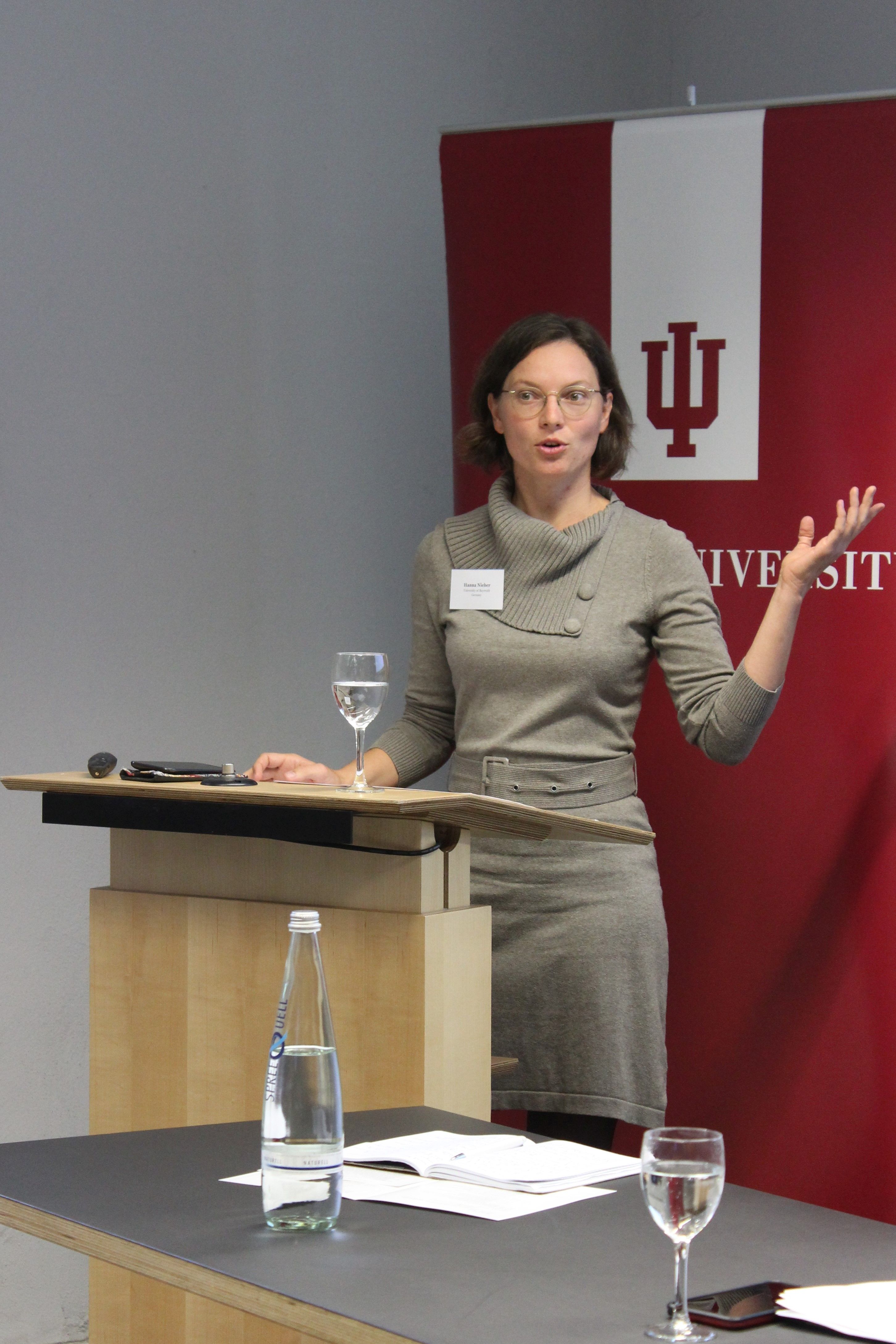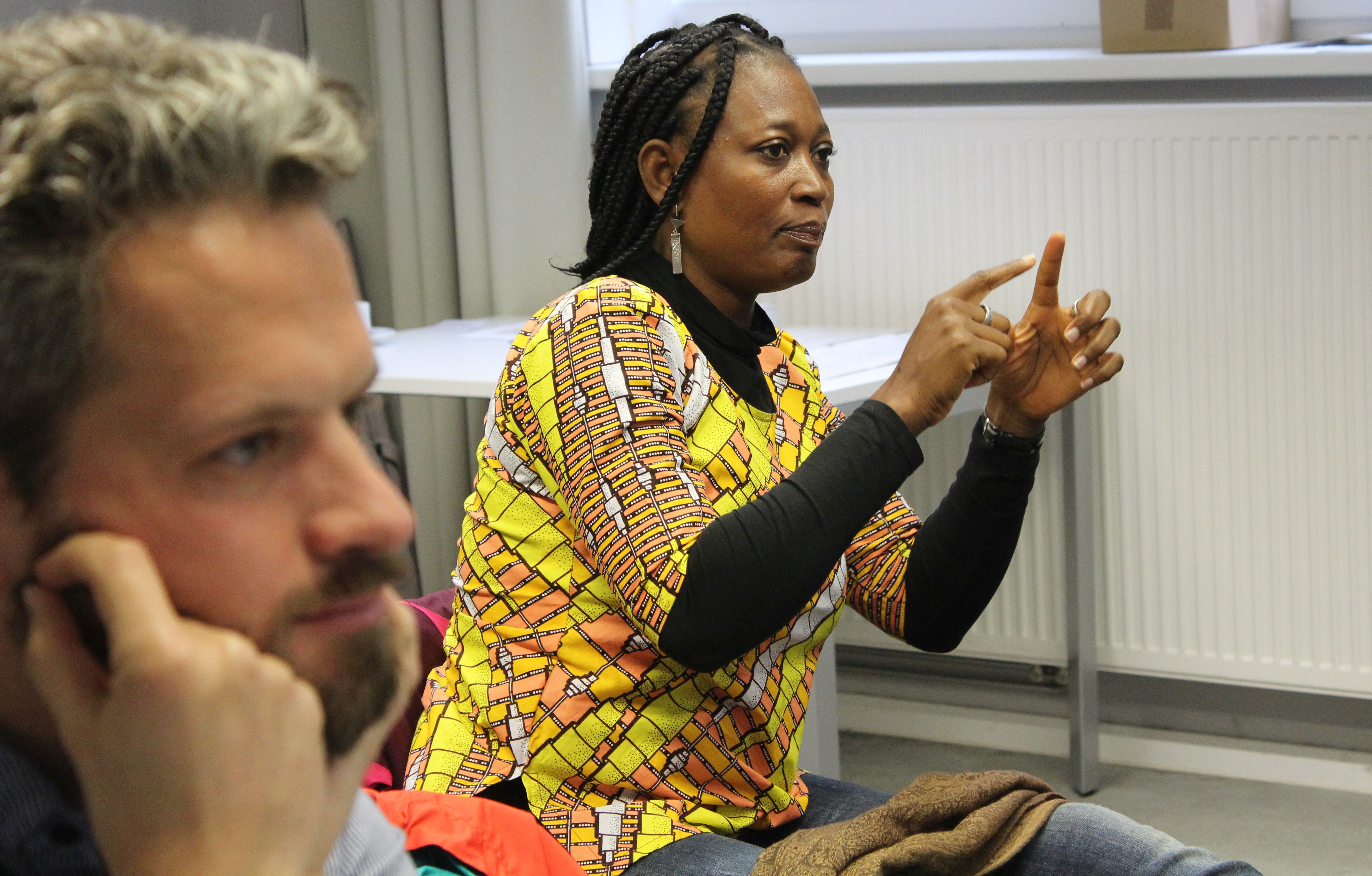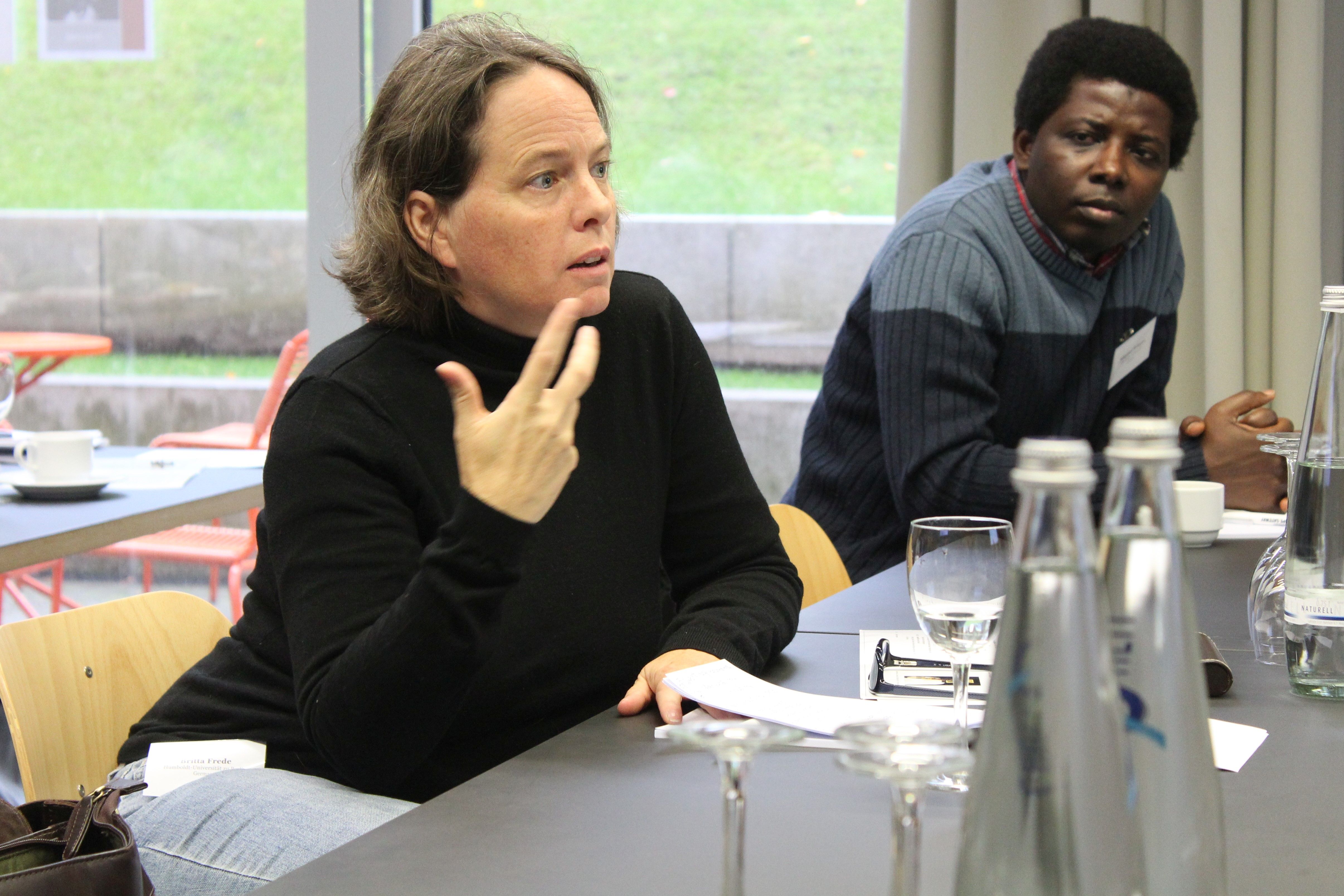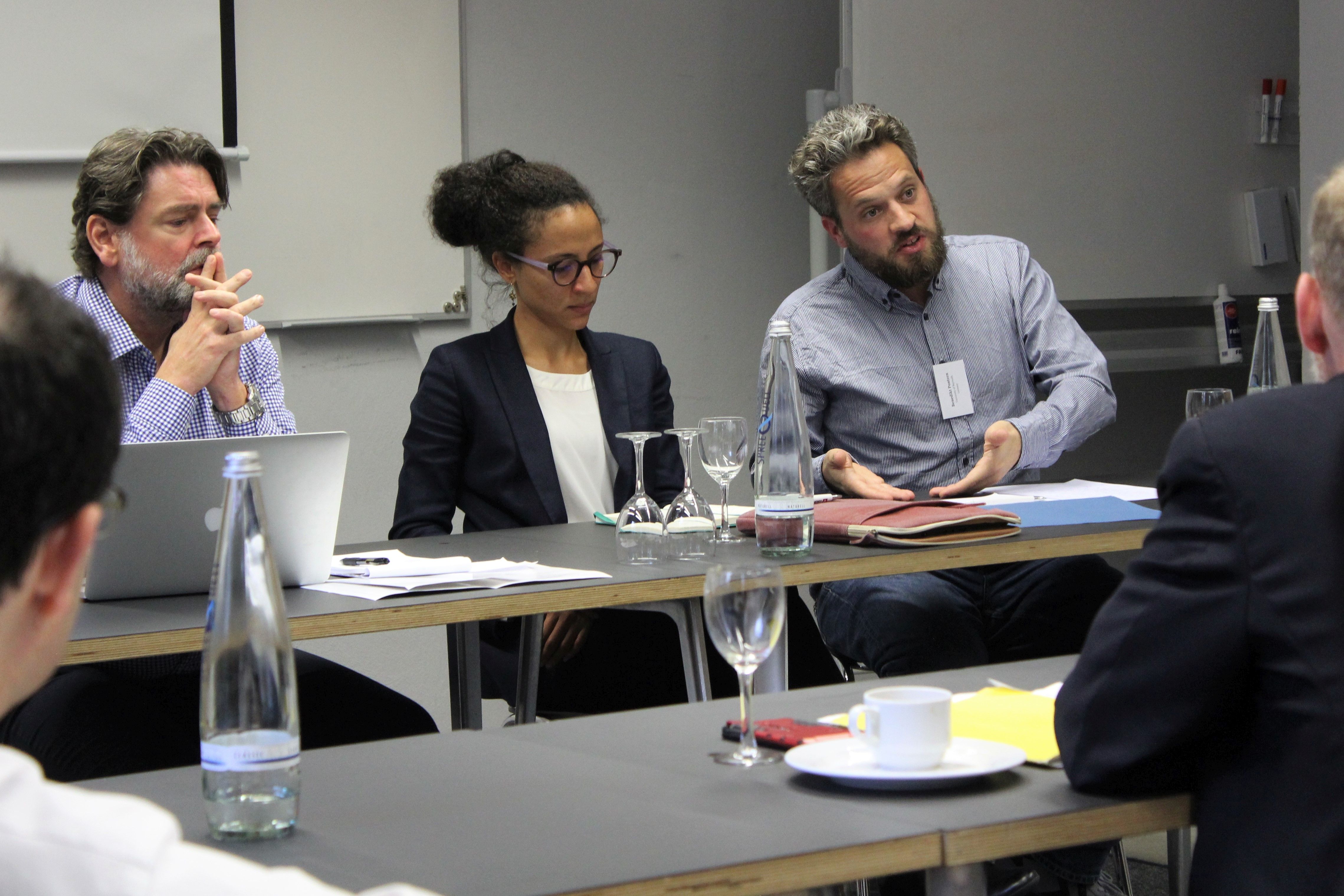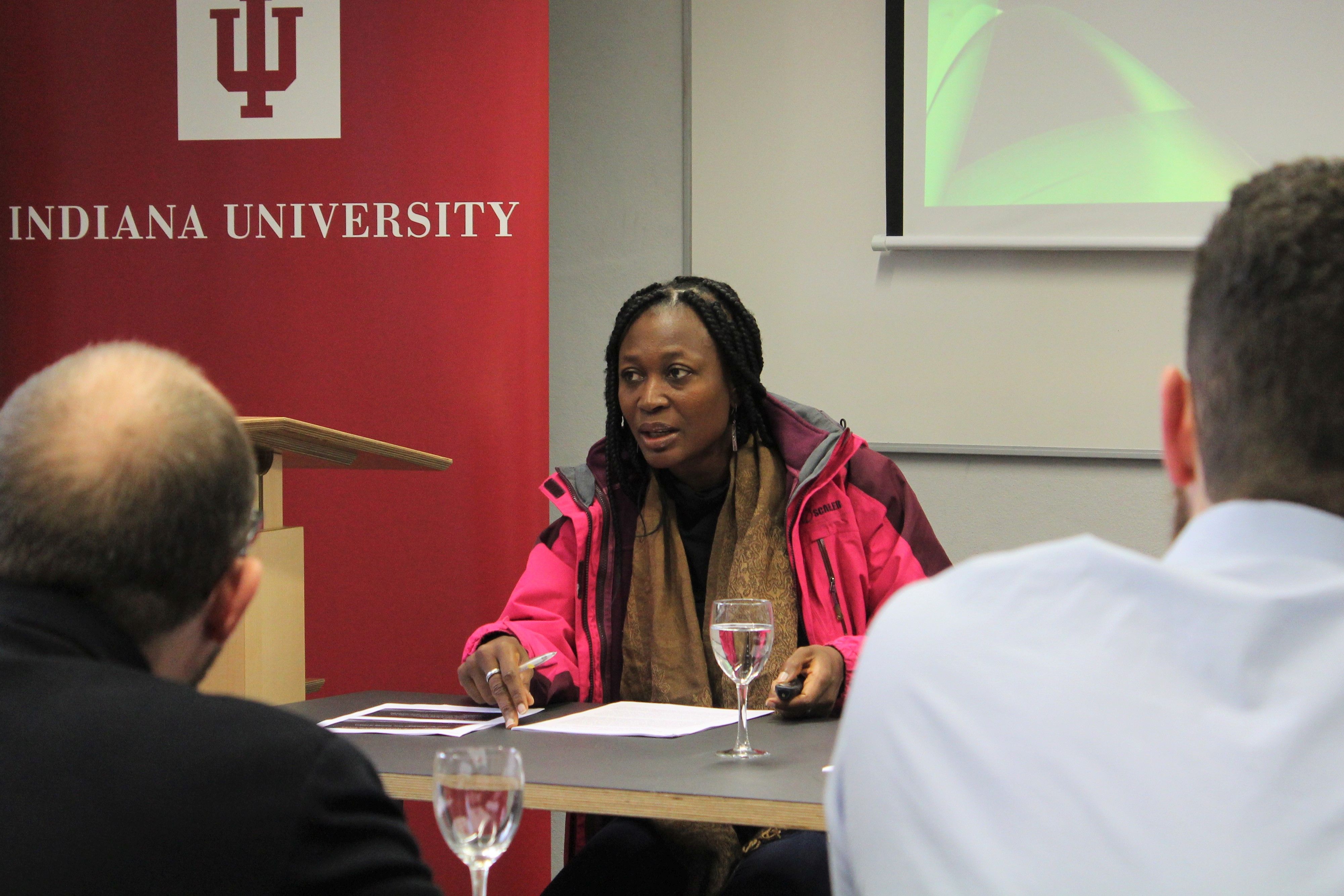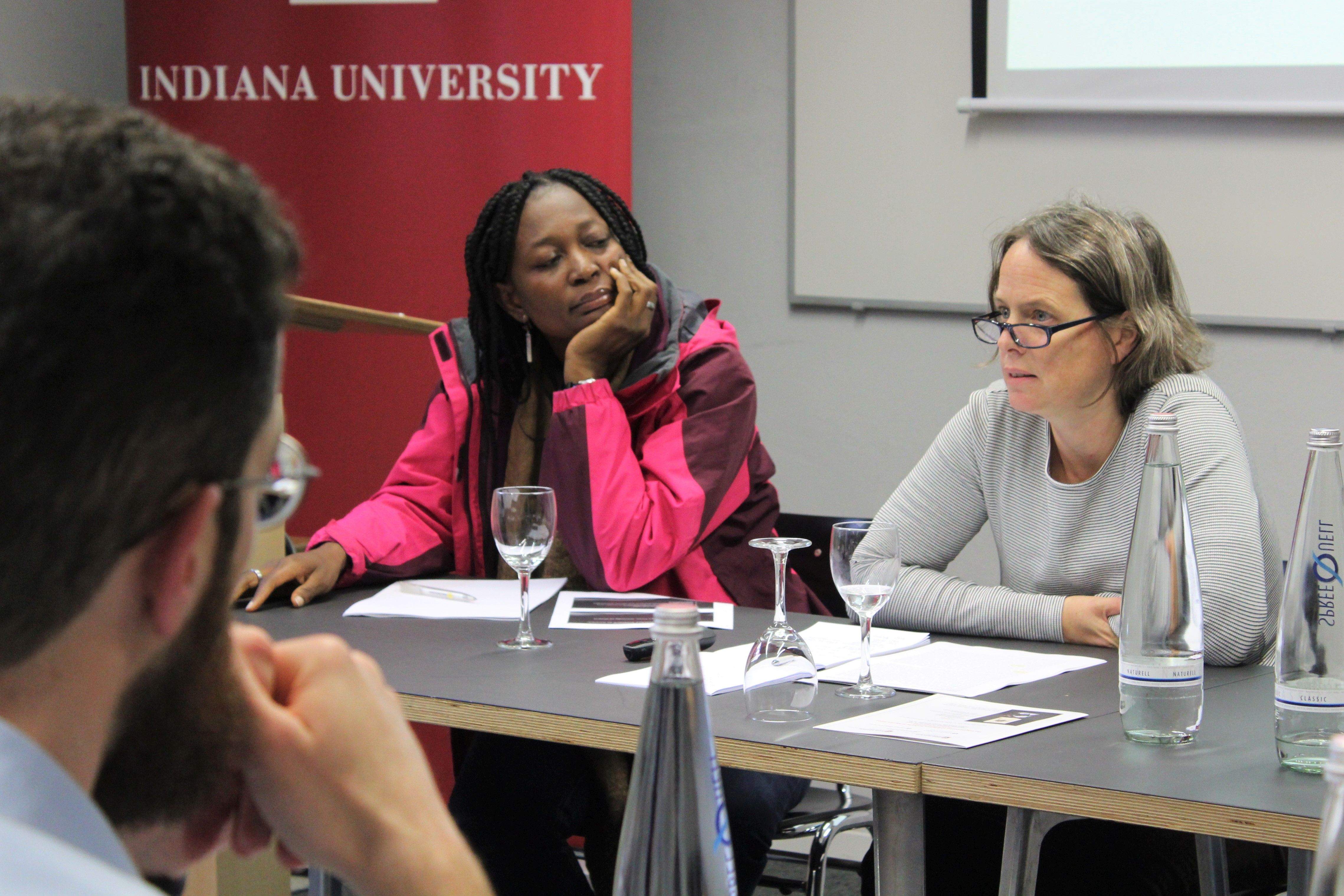News
The Fragmentation of religious Authority in Muslim Africa. An International Workshop
12.10.2019
From 10 to 12 October, 2019 the workshop “The Fragmentation of Religious Authority in Muslim Africa” took place at the Indiana University Europe Gateway in Berlin. The workshop explored the topic extensively in one keynote lecture and five discussion panels.
Von Britta Frede, Research Fellow, Africa Multiple – Cluster of Excellence, University of Bayreuth
The Workshop „The Fragmentation of Religious Authority in Muslim Africa. An International Workshop” was held from October 10 to 12 at the Indiana University Europe Gateway in Berlin (Germany). The workshop was collaboratively organized by the Islamic Studies and African Studies program of the Hamilton Lugar School of Global and International Studies (Indiana University, USA), the Department of Religion and the Center for Global Islamic Studies from the University of Florida (USA) and finally the Africa Multiple Cluster of Excellence from University of Bayreuth (Germany). In one keynote lecture and five panels the topic of religious authority in Muslim Africa was explored from different perspectives. The contributions to the workshop shall finally be published in a double blind peer-reviewed collective volume at Indiana University Press. The details of the publication will be discussed during the upcoming months and potential authors will then be approached to rework their drafts and develop them into book chapters.
The keynote lecture on Thursday afternoon was addressed by Prof. em. Dr. Stefan Reichmuth (Ruhr-Universität Bochum, Germany). He gave a broad historical overview on West African Jihad movements from the 18th century onward and introduced some general ideas about the approach and representation of the prophet’s live and acts within these militant revolutionary movements.
The first panel on Friday morning approached the topic of authority from a critical investigation of text as a source of Muslim authority. Sean Hanretta (Indiana University, USA) introduced his concept of “bundles” to discuss authority beyond the category of the discursive tradition instead of looking at text focusing more at ritual practice and their transformation. His theory was accomplished by examples from Ghana. Wendell Marsh (Rutgers University-Newark, USA) instead focused on texts composed by the Senegalese scholar Cheikh Moussa Camara and his debate on which genealogy should be emphasized more when reflecting on Muslim authority: the filiation from a saintly or even sharifian family or the affiliation with the sheikh and his teachers. Hanna Nieber (University of Bayreuth, Germany) further looked at ritual practices with text in Zanzibar, especially the transformation of Quranic texts into liquids within healing practices.
The second panel continued after lunch by shedding light on contemporary representations of Islamic authority. Kimberly Wortmann (Wake Forest University, USA) started with a description of an Ibadi school in Tanzania and their Algerian teachers drawing on networks within Ibadhi Islam problematizing the usage of school books that were written and developed in Oman creating a certain kind of detachment from local tradition. Benedikt Pontzen (University of Bayreuth, Germany) instead looked at the competitive field of religious authorities in Northern Ghana demonstrating that not only knowledge but the manner of comportment (adab) play into the notion of authority.
The third panel after the coffee break focused on media usage in the representations of Muslim authority. In this context, Beth Buggenhagen (Indiana University, USA) looked at aesthetical aspects of portrait photographs of saintly Senegalese authorities during the 1950s in the Bingo magazine. Joseph Hill (University of Alberta, Canada) instead explored the role of social media among the young generation within the global networks of the contemporary Tijaniyya.
The fourth panel continued the workshop on Saturday morning by exploring a variety of male religious authorities from 20th century Muslim Africa. Dorrit van Dahlen (Leiden University, The Netherlands) started with the discussion of the role of ʿAbd al-Ḥaqq al-Tarjumī’s grave in contemporary Abéché (Tchad) that revives an early colonial memory of religious authority to counter contemporary “Wahhabi” domination within the religious landscape of the country. The second presentation was jointly held by Kai Kresse (Leibniz Centre for Modern Oriental Studies (ZMO), Germany) and Kadara Swaleh (Pwani University, Kenya). They discussed three Muslim scholars from the Swaheli coast who took tremendous efforts to reform local Muslim traditions through Arabization and reforms of the teaching curriculum. Finally, Alexander Thurston (University of Cincinnati, USA) looked at Buddah Ould al-Busayri, a Shādhilī Muslim scholar from early independent Mauritania and his role as a critical voice vis-à-vis state policies.
The fifth and last panel discussed female perspectives on Muslim authority in contemporary urban Africa. Starting with Fulera Issaka-Toure’s (University of Ghana, Ghana) presentation of female Muslim authorities within modern educational institutions in Accra (Ghana), she emphasized that these women networks despite of religious education even allow to establish economic activities that empower Muslim women. Britta Frede (University of Bayreuth, Germany) instead looked explicitly at traditional forms of female authority in contemporary Nouakchott (Mauritania) shedding light on the different layers of religious authority within Muslim communities underlining that female agency in Muslim community is not necessarily longing for an anti-patriarchic empowerment of women, but might contribute to the patriarchic hegemony of Muslim communities.


